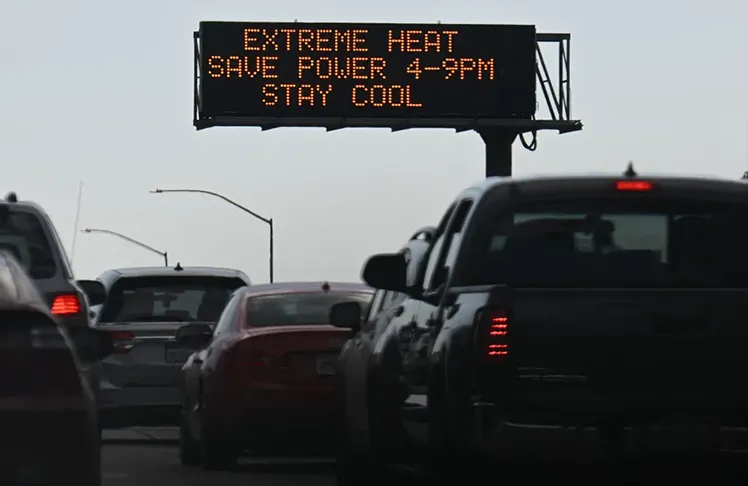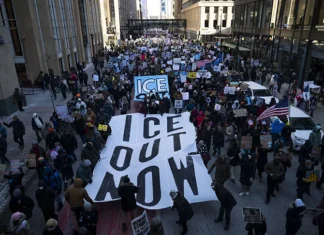
During last summer, the hottest summer on record except for maybe this summer, 47,690 people died due to heat-related issues across Europe. That’s according to a new study published by the journal Nature Medicine.
With summer highs getting hotter in the United States — and Black people more exposed to and adversely affected by extreme heat than others — are we looking at the same kind of mass deaths in the United States too?
Making an apples-to-apples comparison between Europe and the United States is difficult because there is not a similar nationwide study of recent heat-related mortality in the U.S.
The Associated Press looked at death certificates and found that just over 2,300 people died of heat-related issues last year. The same figure is listed on the Department of Health and Human Services website too. But it’s not that there’s that enormous of a gulf between American and European heat-related mortality, but that such deaths are almost always vastly undercounted.
According to National Weather Service data, since 1994, heat has been the leading cause of weather-related death in the United States — more than floods, tornadoes, hurricanes, cold, or wind. But because extreme heat can trigger heart attacks, strokes, and other forms of cardiovascular incidents, a heat-related death might not end up being classified as such.

For example, in July in California, an incarcerated woman, Adrienne Boulware, died in the non-air-conditioned Central California Women’s Facility. Temperatures were 110 degrees outside and Boulware’s family said prison staff told them she died from a heat stroke. But, the California Department of Corrections and Rehabilitation later stated Boulware’s death appeared to be due to pre-existing health conditions.
California had its hottest July since records started being kept in 1895, as did the U.S. and the rest of the globe. But, Europe, according to the study, is warming much more rapidly than the rest of the world — twice as fast as the average globally, according to the study. Last August, the Sicilian town of Syracuse in Italy nearly hit 120 degrees, breaking the old European record of just over 118 degrees that was set in Greece in 1977. The American Southwest is certainly hotter, but people living there are also more accustomed to extreme heat.
And that’s where the EU research shows that progress actually has been made: the mortality rate in 2024 was far lower than the infamous 2003 heatwave that killed 70,000 people, and the researchers estimate that last year’s extreme heat would have killed 80% more people if it had occurred 20 years ago. So while we’re not making any strides when it comes to stopping global warming, we are making social and cultural adaptations to extreme weather that are saving lives.
As Dominic Royé, Climate Research Foundation’s head of data science (who was not involved with the study) told The Guardian, “Social adaptation to rising temperatures has played a crucial role in preventing mortality in Europe but remains insufficient.”
That doesn’t just mean installing air conditioning, however, which remains uncommon even across southern Europe. Cooling centers, avoiding the outdoors during the heat of the day, staying hydrated, and being aware of dangerous overnight high temperatures can all help, and don’t require popping in a window unit.
There are specific social and cultural adaptations, including some requiring political will, that can and should help to protect Black and Brown Americans from extreme heat too — from big changes, like establishing protections from extreme heat in workplaces that rely heavily heavy on non-white workers, to making sure that low-income people who have A/C aren’t afraid of the costs of turning it on when then need it the most.
And while we haven’t made it as far as we can or should from protecting people from extreme heat, we can see progress in the United States too: last summer, when Chicago experienced record highs and there were concerns of a repeat of the deadly 1994 heatwave, which disproportionately killed Black residents, such a tragedy thankfully did not come to pass.















